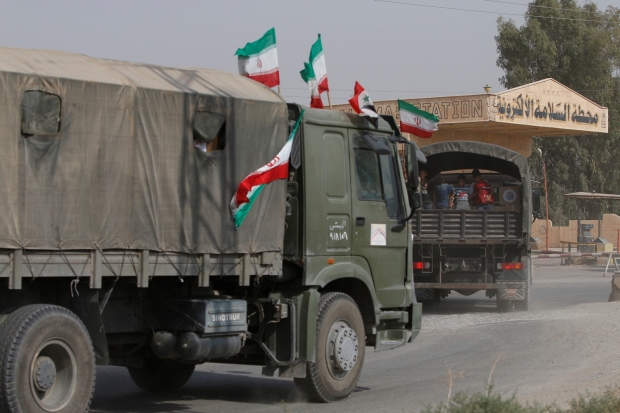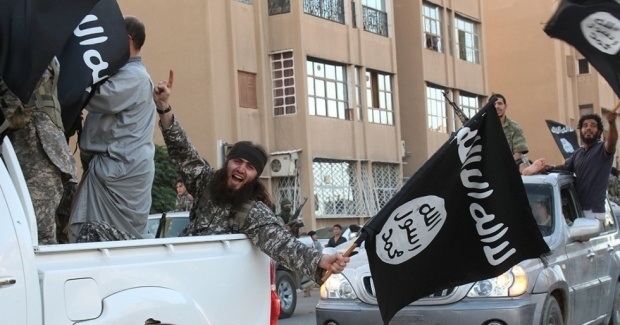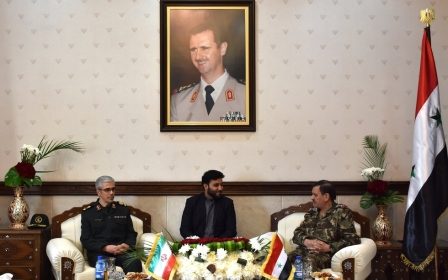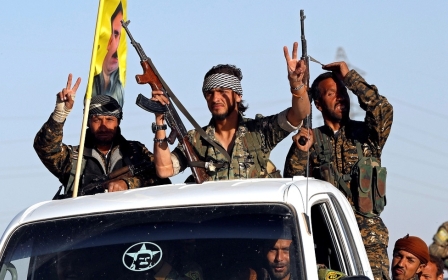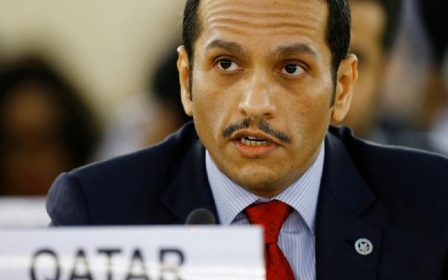ANALYSIS: Post-Raqqa IS moves from 'caliphate' to guerrilla war
NEW YORK, United States – US-backed Syrian forces removed landmines and cleared rubble-strewn roads in the northern city of Raqqa on Wednesday as they prepared to formally declare the liberation of a city that was until recently the Islamic State (IS) group’s de facto capital.
The fall of Raqqa marks a major defeat for the notoriously brutal militants, who have seen their self-styled "caliphate" shrink steadily since summer. Still, analysts told Middle East Eye they would not yet write off a group known for both its stubborn resilience and die-hard fanaticism.
Defeating the remnants of IS in Iraq and Syria will likely be confounded by the conflicting goals of the US, Iran, Russia, Turkey, the Kurds and others, while IS militants have plenty of redoubts across the Middle East, Africa and Asia to fall back to, they said.
IS benefits from conditions of disorder, and conditions in which Sunnis are alienated from their government.
- Jennifer Cafarella, the Institute for the Study of War
Lessons from 2007 loom large, said Aaron Stein, from the Atlantic Council, a think-tank. The Islamic State in Iraq, as it was then known, was left for dead after the US-led surge in Iraq, only to regroup across the Syrian border and re-emerge with a blitzkrieg land-grab in 2014.
“The physical caliphate is crumbling, but IS’s predecessor demonstrated the ability to sustain basic operations even while the US military and its Iraqi allies were focused on destroying the group,” Stein, author of Turkey’s New Foreign Policy, told MEE.
On Wednesday, Kurdish-led Syrian Democratic Forces (SDF) continued to celebrate the win over IS, which is also known as ISIS and ISIL, clearing booby traps and other explosives amid fears of some 100 militants still hiding out after the four-month battle for Raqqa.
Aid groups warned of civilian suffering and the UN refugee agency said some 40,000 Raqqa residents had recently flooded the province’s already overcrowded camps. US officials spoke of getting water and electricity running again across the battle-ravaged city.
Speaking in Baghdad, US Army Colonel Ryan Dillon said the IS "caliphate" had shrunk by 87 percent from its peak expanse in 2015, with the fall of the Iraqi city of Mosul in July, and other losses, under pressure from Washington’s 73-member coalition.
IS oil revenues have been cut by 90 percent and the flow of 1,500 foreign fighters that once swelled the group’s ranks every month slowed to a trickle as its ostensibly devout motivations were exposed as a “cesspool of brutal lies, torture and oppression”, Dillon added.
The military focus has already switched to IS strongholds along the Euphrates River valley on either side of the Iraq-Syria border, including the Syrian city of Deir Ezzor and Rawa and al-Qaim in Iraq’s western Anbar province.
The top IS leaders left Raqqa months ago. Many regrouped in the Syrian town of Mayadeen, which was itself recaptured by the Syrian government and its Russian and Iranian allies over the weekend.
It remains unclear whether IS leader Abu Bakr al-Baghdadi was among them, amid multiple reports of his death. If alive, he has some 6,500-10,000 militants left under his command, down from an estimated peak in excess of 100,000.
While it is on the back foot, chaotic conditions on the ground could help IS slip into the shadows and re-emerge later, he added.
Dillon spoke of crushing IS, but others seemed keener to exit the war. State Department spokeswoman Heather Nauert urged “local officials to take over responsibility” for Raqqa and rejected attempts at the “sort of nation building” seen previously in Iraq and Afghanistan.
Exploiting tensions
As US-backed SDF troops advance along the Euphrates, they are increasingly likely to encounter the forces of Syrian President Bashar al-Assad, Russia and Iran, which in spite of efforts to limit military collisions, may spark tensions that IS can exploit, said Adams.
“There’s going to be a fair amount of regional mayhem resulting from the fall of IS because there are so many other issues at stake and so many players involved who don’t share the same interest in getting rid of IS,” Adams told MEE.
Similar problems have emerged in northern Iraq, where clashes between Kurdish and Iraqi forces in Kirkuk may also divert focus from IS. Fighting there may nudge Turkey into military action against Syrian Kurds in a bid to counter what Ankara sees as a domestic security threat.
In Syria and Iraq, IS has proven adept at exploiting long-standing grievances among Sunni Arabs. At least at the beginning of IS’s rise, some Arabs viewed the militants as defenders against their countries’ corrupt leaders, even if they did not always embrace the group’s austere version of Islamic rule.
“IS will certainly attempt to exploit gaps in security. If the coalition lifts any of its pressure against IS, it could quickly return to combat ability,” Jennifer Cafarella, from the Institute for the Study of War, a military think-tank, told MEE.
“That’s not inevitable, but IS benefits from conditions of disorder, and conditions in which Sunnis are alienated from their government. That is still very much true in Syria, and we need to ask how true it is in Iraq.”
'An ideology'
IS militants have options beyond the Euphrates valley, said Adams. He predicted militants “donning civilian garb” and blending in with civilian travellers to regroup in Yemen, Libya, Afghanistan, Somalia, Nigeria, the Philippines and beyond.
“It’s harder to count a movement that’s a movement and not a piece of geography,” Adams said. “There may be a floating headquarters somewhere for IS, but they have all of the modern means of communication they need to continue as terrorist and insurgent threat.”
The Islamic State is a belief, an ideology and a religious practice that existed independent of the caliphate, and it will exist after the end of the caliphate
- Gordon Adams, former White House national security official
Experts are assessing whether the truck bomb that killed about 300 people in Mogadishu, Somalia, on Saturday, and the ambush that left four Americans dead in Niger on 4 October, were linked to a growing IS presence in African hotspots, said Cafarella.
But she noted there are more likely destinations for IS militants to pursue their holy war, including Libya, Afghanistan, Russia and Southeast Asia. On Monday, the Philippines’ military chief vowed to destroy IS-linked militants, days after the killing of two top rebel commanders.
In Afghanistan, IS militants have clashed with the Taliban in the past, but more recent cooperation between the two hardline groups has raised the prospect of a “possible unification of their operations against the Afghan government”, Cafarella said.
Fighters loyal to Omar al-Shishani, the red-bearded, battle-hardened Georgian IS leader who was reported killed in a US air strike in 2016, are understood to have headed to Russia carrying out a series of “low-level attacks inside” that country, she added.
“The Islamic State is a belief, an ideology and a religious practice that existed independent of the caliphate, and it will exist after the end of the caliphate,” Adams, a foreign policy scholar at American University, told MEE.
This article is available in French on Middle East Eye French edition.
Middle East Eye propose une couverture et une analyse indépendantes et incomparables du Moyen-Orient, de l’Afrique du Nord et d’autres régions du monde. Pour en savoir plus sur la reprise de ce contenu et les frais qui s’appliquent, veuillez remplir ce formulaire [en anglais]. Pour en savoir plus sur MEE, cliquez ici [en anglais].


